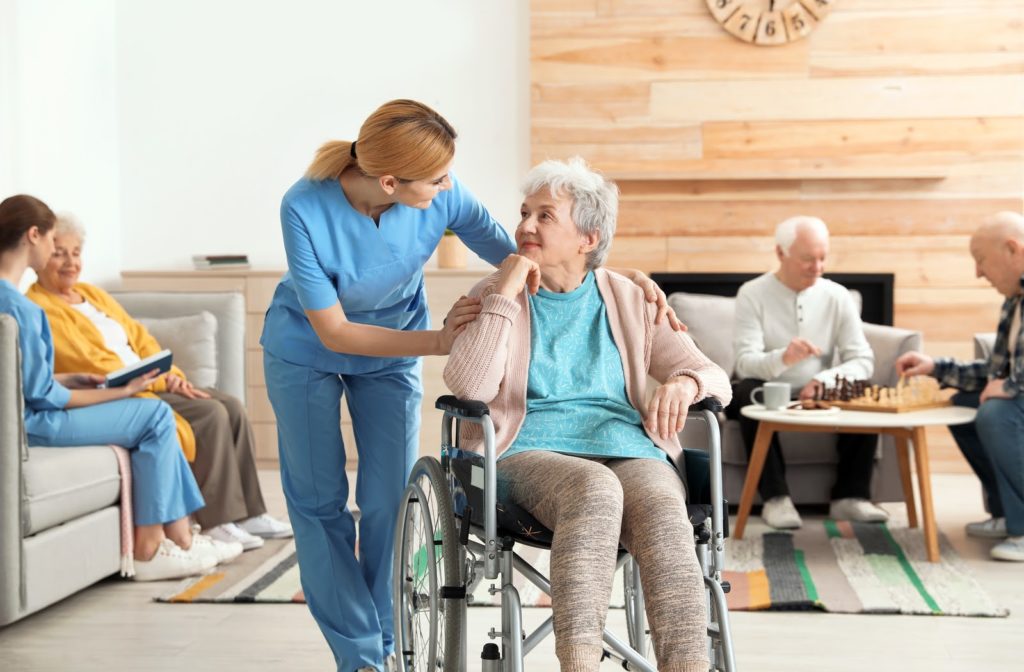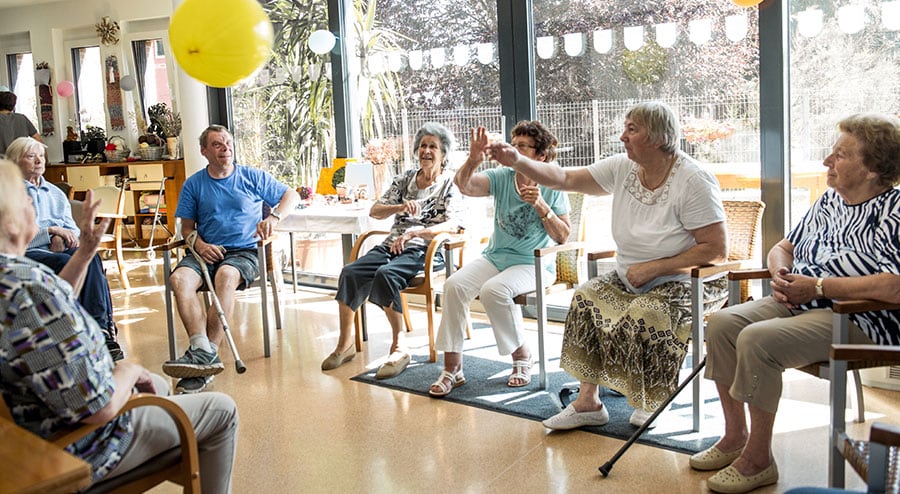Get expert care and comfort with trusted Assisted Living solutions.
Get expert care and comfort with trusted Assisted Living solutions.
Blog Article
How Helped Living Facilities Enhance High Quality of Life for Those With Dementia
Assisted living centers play a critical duty in enhancing the lifestyle for people with dementia by applying tailored care methods that deal with their unique needs. These atmospheres combine organized activities with psychological support, fostering a sense of neighborhood while ensuring security and freedom. The assimilation of appealing programs and family members involvement additionally improves the homeowners' experience. Yet, the intricacies of mental deterioration treatment proceed to advance, triggering a closer assessment of just how these centers adapt and innovate to meet the obstacles encountered by citizens and their families. What effects does this have for future care models?
Personalized Treatment Program
(Dementia Care Charlotte)In most cases, individuals with mental deterioration require tailored support that addresses their special demands and choices. Customized treatment strategies are necessary in assisted living settings, as they make certain that each resident obtains proper interest and solutions. These strategies are established collaboratively, including healthcare professionals, caretakers, and member of the family to create a detailed introduction of the individual's clinical background, cognitive abilities, and individual passions.
A well-structured personalized care strategy typically consists of particular goals connected to wellness management, day-to-day activities, and social engagement. It makes up the person's cognitive decrease while advertising self-reliance and dignity. Normal evaluations and updates to the treatment strategy are important, as they enable alterations based on the homeowner's advancing problem and preferences.
Trick components of these strategies commonly include medication monitoring, behavior support approaches, and nutritional guidelines customized to the person's demands (Memory Care). By concentrating on individualized care, aided living facilities can foster a helpful setting that improves the top quality of life for people with mental deterioration, ultimately adding to their overall health and happiness. This personalized method respects the originality of each homeowner, guaranteeing they obtain the caring treatment they call for

Involving Tasks and Programs
Involving homeowners in purposeful activities and programs is vital for boosting the lifestyle for individuals with mental deterioration. These activities not just give enjoyment but also stimulate cognitive function and advertise social communication, which can mitigate sensations of isolation commonly experienced by citizens.

Additionally, individualized programs are vital in making sure that each local's one-of-a-kind preferences and capacities are acknowledged. This customized technique motivates involvement, boosts self-confidence, and provides a feeling of success.
Additionally, normal evaluations of locals' passions can help personnel change and adapt activities to better match progressing demands. By focusing on interesting tasks and programs, helped living centers can substantially boost the general experience and emotional health and wellness of people living with dementia.
Safe and Supportive Atmosphere
Developing a secure and helpful setting is important for individuals with dementia, as it straight influences their health and top quality of life. Assisted living facilities are made with specific functions that advertise safety and security while promoting a feeling of security and comfort. Memory Care Facility Charlotte These settings focus on ease of access, with formats that reduce confusion and urge self-reliance, permitting citizens to navigate their surroundings more easily.
Precaution, such as secure entryways and exits, prevent wandering and unapproved gain access to, which are vital considerations for people with mental deterioration (Assisted Living). Employee are trained to recognize the special requirements of homeowners, giving tailored assistance and supervision to ensure their safety and security. Furthermore, the unification of calming shades and acquainted items can help in reducing anxiousness and disorientation, creating an extra calming ambience.
In enhancement to physical security, psychological support is paramount. Facilities commonly use team who are not just knowledgeable in caregiving but likewise learnt compassion and communication, fostering trust fund and rapport with citizens. This holistic approach adds to a caring environment where individuals feel valued and understood, eventually improving their overall lifestyle.
Social Interaction and Area
A supportive atmosphere not just focuses on security however also promotes opportunities for social communication and area involvement, which are important for people with dementia. In nursing home, organized tasks and common spaces motivate homeowners to link with each other, minimizing sensations of seclusion commonly experienced by those with cognitive disabilities.
Social communication plays a considerable duty in boosting psychological well-being and cognitive function (Memory Care). Involving with peers in group activities such as games, arts and crafts, or workout not just boosts cognitive capacities yet also nurtures a sense of belonging. Facilities usually organize occasions that promote socializing, permitting locals to construct connections and share experiences, which can be particularly useful for those with dementia
Furthermore, a dynamic area environment can enhance the overall quality of life for locals. Personnel members are trained to assist in interactions and assistance residents in developing purposeful links.
Family Involvement and Support
Family involvement is crucial in sustaining individuals with mental deterioration in assisted living atmospheres. Proactively involving relative not only offers emotional convenience to homeowners yet likewise promotes a feeling of belonging and continuity in their lives. When households take part in treatment preparation and everyday tasks, they add important insights about the individual's preferences, history, and needs, which can enhance individualized treatment.
Additionally, regular family gos to can substantially boost the psychological wellness of residents, reducing sensations of seclusion and anxiety. Household participants can likewise assist in preserving cognitive feature by engaging their loved ones in familiar conversations and tasks. This communication strengthens personal identity and assists citizens feel valued and recognized.

Conclusion
Finally, assisted living facilities considerably improve the quality of life for individuals with dementia through individualized treatment strategies, involving tasks, and a secure atmosphere. These components foster cognitive stimulation, psychological well-being, and a sense of independence. Regular social interactions and solid family participation contribute to meaningful connections and emotional assistance. Jointly, these variables create a holistic strategy to care that addresses the distinct demands of people with dementia, advertising overall health and self-respect.
Report this page